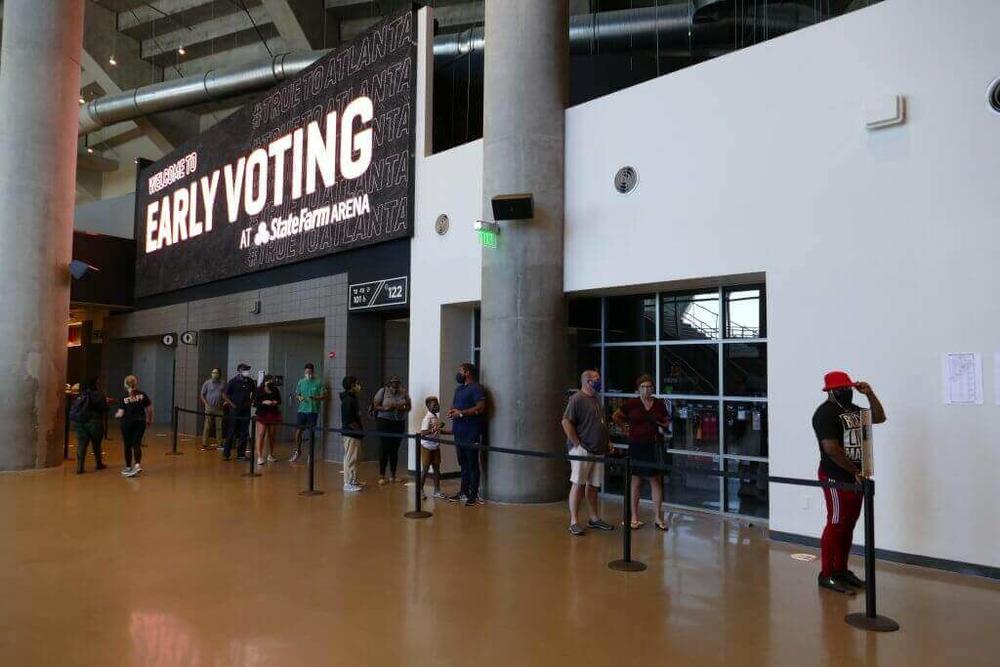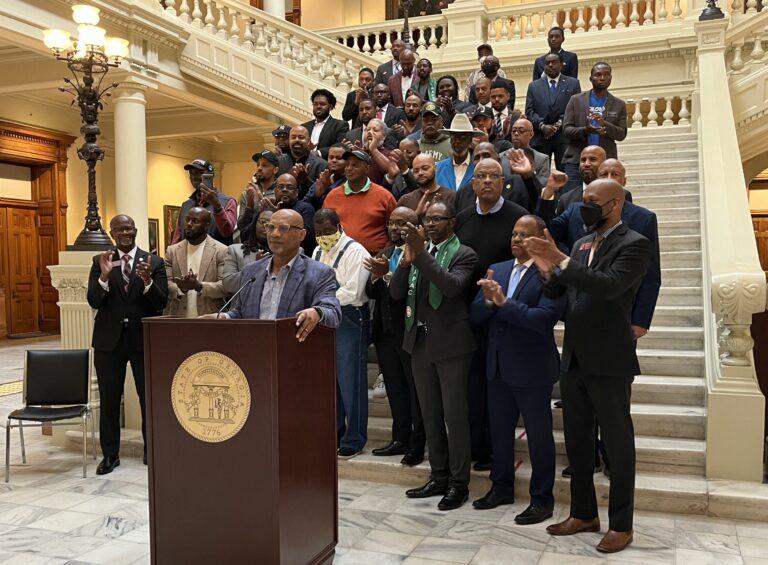
Caption
Georgia voters in Atlanta line up in 2020. State election rules now allow individuals to challenge an unlimited number of voters in the Nov. 8 general election, and they specify when and how eligibility can be challenged. The challenges must be submitted in writing to registrars who can determine if there is enough probable cause, and challenging someone standing in line at a polling station is illegal.
Credit: John McCosh / Georgia Recorder (File 2020)


